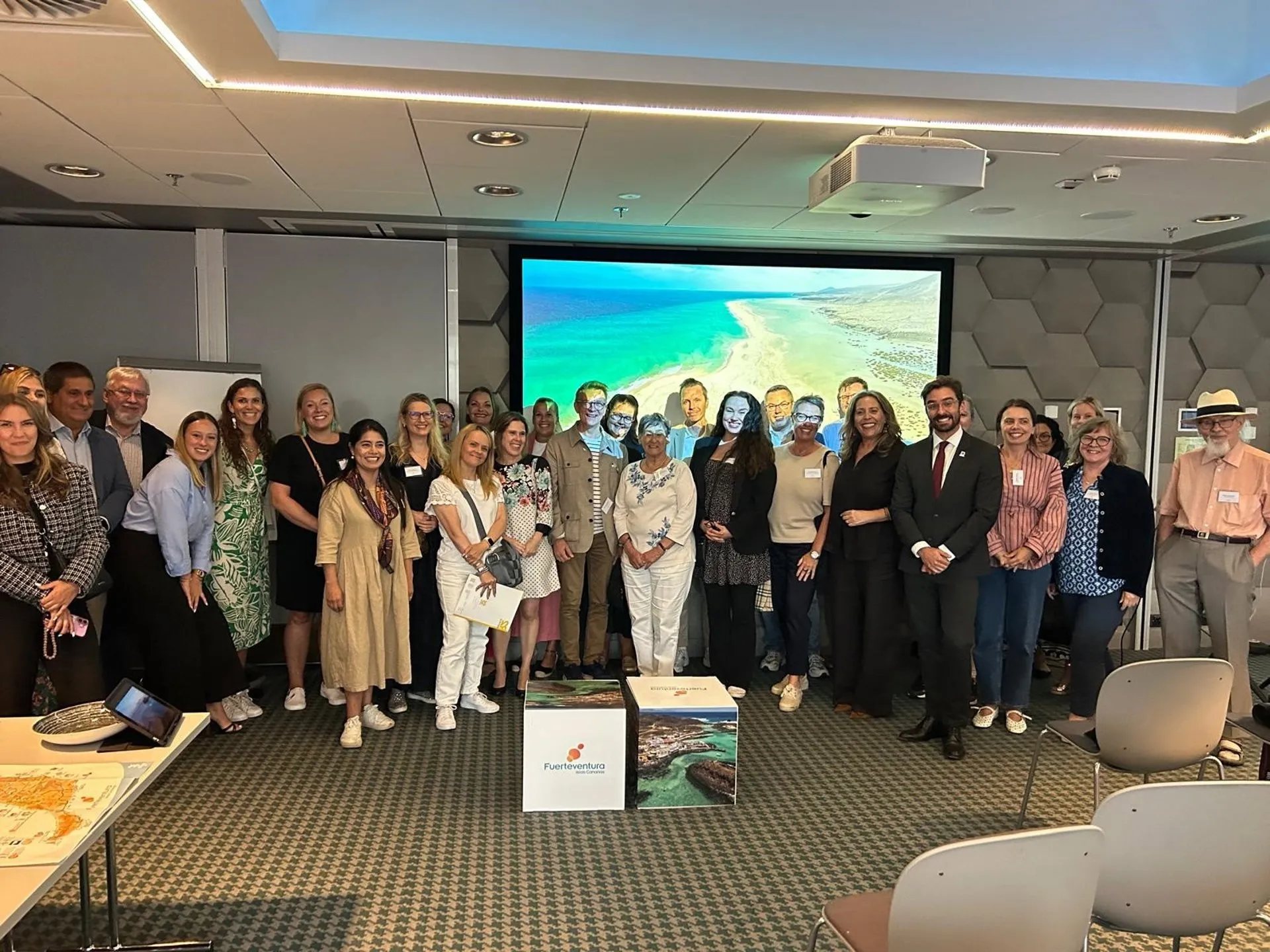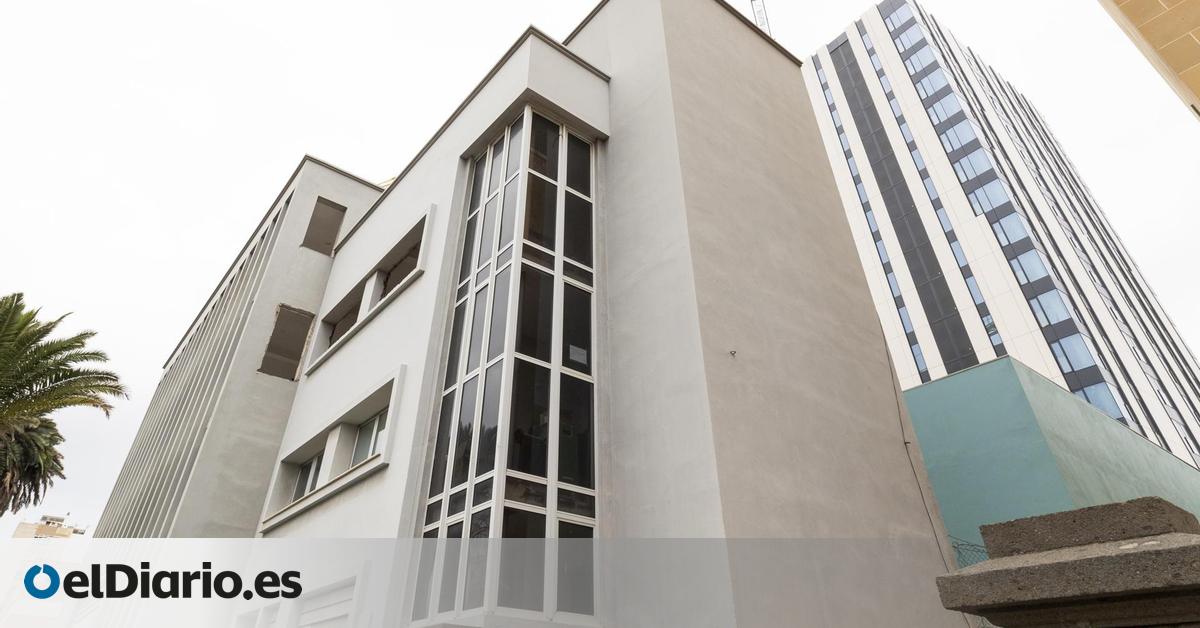The Return to School: A Lesson in Humanity
September arrived, bringing the scent of coloured pencils and new socks waiting to be filled with steps full of adventure. The sun illuminated the schoolyard, that giant lamp that brightens the laughter of children on this island of Lanzarote. The children ran about; some walked more slowly, their backpacks filled with hopes and dreams. It was that time of year again—the return to school.
Daniel, arms crossed, murmured sadly. He didn’t want to go back and preferred to continue enjoying his holiday.
Lucía responded cheerfully:
—Well, I’m happy. I want to see my friends and I’m curious to peek through those magical windows where the teachers tell us interesting things.
Ana Gloria silently listened and said:
—I want to learn about that place, Gaza, that I hear every day in my parents’ conversations.
Diego quickly added:
—And I want to know what’s happening in Russia and Ukraine. All the news talks about those places.
At that moment, teacher Verónica arrived with a big smile and welcomed us with a warm hug. We suggested she talk to us about these topics, and she, very happily, said:
—Today we’re going to travel with our imagination.—And she hung a map on the wall.
—Here is the Gaza Strip—she pointed to a tiny spot near the vast Mediterranean Sea—. It’s a very small place, smaller than Lanzarote, but over two million people live there.
The children’s eyes widened in astonishment, like giant lanterns.
In Gaza, many children like you live: they have dreams, they want to play, they wish their parents could hug them without hiding from bombs, to have a bicycle to ride and play outside. While other children ask for electronic toys,
they simply wish for their home to be a safe haven once again, not a charred memory.
Ana Gloria lowered her head, and sadly remarked:
—How sad it must be not to have a clean bed that smells of hugs from mum and dad.
The teacher then pointed at a vast country on the map: Russia, the largest country in the world. It has towering mountains, enormous lakes, beautiful forests with very cold winters, where everything is covered in snow. There is a lovely city where white tigers live: Vladivostok, the main base of the Russian Pacific fleet.
But in recent years, it has been in conflict with a neighbouring country called Ukraine. This has caused many families to flee their homes, and children to suffer fear and loss. They also suffer, like the children in Gaza.
Diego raised his hand and said:
—Wow, those poor children want the same thing we do: to have a life like any other child.
Marta nodded:
—We didn’t choose to come into this world, but if we do come to life, we deserve to be like the pages of a new book that didn’t ask to be written. But if we open the first page, we deserve to be the best story ever told, and with much love.
The teacher looked at everyone and asked:
—What can we do from Lanzarote to help those poor children of the world?
Lucía was the first to respond:
—We can write them letters and draw pictures with messages of friendship, send them school supplies: notebooks, pencils, backpacks.
Ana Gloria proposed:
—We could make a large mural at school that says: “All children deserve to live with dignity.”
Then Lucía reflected aloud:
—The world is very unfairly divided… Some children live in pain, war, and sadness, while others have everything, live with wealth and security, and still, they are unhappy.
Ana Gloria added:
—The worst thing is that often we all look back, remember what happened, feel pity… but we don’t act or commit to changing anything.
The teacher listened attentively and said:
—You are not the only ones who think this way. In May 2025, many writers and professionals from the Children’s and Young Adult Literature scene in Spain released a manifesto to loudly denounce the massacre in Gaza. They stated they did not wish to be “silent accomplices” and concluded with these words: “This is not the world we imagined; this is not the world we want.”
Here in Lanzarote, we have a significant example: the Casa Museo of José Saramago in Tías. Saramago was a writer who lived on our island and always defended justice and spoke of Palestine. He taught us that the written word can also be an act of commitment.
—These are all wonderful ideas! Although we are far away, we can do a lot: inform ourselves and talk about them so that their stories are not forgotten; create messages of peace—letters, murals, videos, songs; collaborate in solidarity campaigns with school supplies.
—So… —Ana said softly—, does helping start here, in our class and our lives?
—Of course —the teacher replied—. If we learn to respect and care for each other here, we are building the peace we want for them.
Daniel lifted his head and said with a smile:
—Now I like being at school. Here we don’t just do our homework; we also learn to commit and change the sadness of other children.
The others smiled. And on that first day, they discovered that school is not just a place for notebooks and homework, but a space to dream together of a peaceful world, reflect on global inequalities, and learn that the true difference lies in committing body and soul.
—We can record a video with phrases made by the children —Lucía proposed—. We’ll compile it and send it to other schools around the world. It can be shared on social media with
subtitles in multiple languages. Our commitment cannot remain just in this class.
—Let’s write letters in several languages asking for peace —the teacher added—, so that they travel to as many schools as possible, reaching, little by little, the world’s leaders. That way, they will know that we too ask for peace and that we don’t want to be silenced. That our ears should not be plugged while other children shout.
“Childhood is the homeland of all men. Defending a child’s dignity is defending the future of humanity.” José Saramago.
“The future of children is always today. Tomorrow will be too late.” Victor Hugo. “Dignity is not negotiable, even in misery.” Benito Pérez Galdós.
When the world is silent, let our colourful letters speak. Happy new term!














